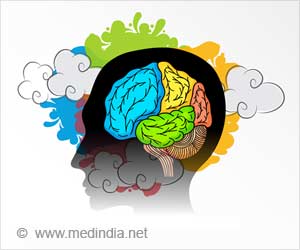- Healthy fats, especially Omega-3 fatty acids, and monounsaturated fats found in avocados, nuts, and seeds, can help reduce brain fog
- Probiotic-rich foods like yogurt and fermented vegetables boost gut health, which is linked to improved mental clarity
- Consuming leafy greens and antioxidant-rich foods, such as berries and spices, supports brain health and helps counter brain fog
Embrace Healthy Fats
Contrary to the bad reputation fats often receive, some types are crucial for optimal brain function. Omega-3 fatty acids, a type of polyunsaturated fat, have been hailed for their brain-boosting properties (1✔ ✔Trusted SourceBrain foods: the effects of nutrients on brain function
Go to source). Fatty fish like salmon and mackerel are rich in these beneficial fats. Plant-based sources such as chia seeds, flax seeds, and walnuts also offer substantial amounts.
Moreover, monounsaturated fats found in avocados, nuts, and seeds contribute to healthy blood flow, benefitting brain function. Incorporating these healthy fats into your diet can help clear brain fog, improving concentration and memory.
Harness the Power of Probiotics
Probiotics, the beneficial bacteria residing in your gut, play a surprisingly significant role in brain health. The gut-brain axis, the communication network between your gut and brain, relies heavily on these tiny microbes. When your gut health is in check, your brain reaps the benefits, leading to improved mood, better stress response, and increased mental clarity.You can improve your gut health by consuming probiotic-rich foods like yogurt, kefir, fermented vegetables, and pickles (2✔ ✔Trusted Source
Probiotic Supplementation Improves Cognitive Function and Mood with Changes in Gut Microbiota in Community-Dwelling Older Adults: A Randomized, Double-Blind, Placebo-Controlled, Multicenter Trial
Go to source). These foods enhance the diversity and abundance of your gut microbiome, potentially helping to dissipate brain fog.
Load Up on Leafy Greens
Don't underestimate the power of leafy greens. Packed with essential nutrients, these vibrant vegetables are a boon for your brain. They're particularly high in folate and vitamin K, both of which are known for their brain-supportive roles (3✔ ✔Trusted SourceNutrition and cognitive health: A life course approach
Go to source).
Folate, a B vitamin, is involved in brain development and function. It aids in the production of DNA and RNA and is necessary for producing the chemicals that regulate sleep, mood, and other neurological functions.
On the other hand, Vitamin K has antioxidant and anti-inflammatory properties, protecting the brain against oxidative stress and inflammation, which can contribute to brain fog. Leafy greens, such as spinach, kale, and broccoli, are excellent sources of these vital nutrients (4✔ ✔Trusted Source
Dietary Antioxidants and Brain Health: Focus on Cognitive and Affective Disorders
Go to source).
Power Up with Antioxidants
Antioxidants are nature's defense against harmful substances called free radicals, which can damage cells and contribute to aging and diseases. They have also been found to enhance brain health. Berries, like blueberries and strawberries, are rich in antioxidants such as flavonoids, anthocyanins, and resveratrol. Regular consumption of these fruits has been linked to improvements in brain function and a delay in brain aging.Spices are another potent source of antioxidants. Turmeric, for instance, contains curcumin, a compound with potent anti-inflammatory and antioxidant benefits. Similarly, black pepper is rich in piperine, an antioxidant that can improve brain function.
Brain fog can be a disconcerting experience, but it's not something you have to live with. By incorporating brain-boosting foods into your diet, you can enhance your mental clarity, boost your focus, and navigate your day with a clear mind. So the next time you reach for a snack, remember, what's on your plate can lift the fog off your brain.
References:
- Brain foods: the effects of nutrients on brain function - (https://www.ncbi.nlm.nih.gov/pmc/articles/PMC2805706/)
- Probiotic Supplementation Improves Cognitive Function and Mood with Changes in Gut Microbiota in Community-Dwelling Older Adults: A Randomized, Double-Blind, Placebo-Controlled, Multicenter Trial - (https://pubmed.ncbi.nlm.nih.gov/32300799/)
- Nutrition and cognitive health: A life course approach - (https://www.ncbi.nlm.nih.gov/pmc/articles/PMC10083484/)
- Dietary Antioxidants and Brain Health: Focus on Cognitive and Affective Disorders - (https://www.ncbi.nlm.nih.gov/pmc/articles/PMC8615210/)
















